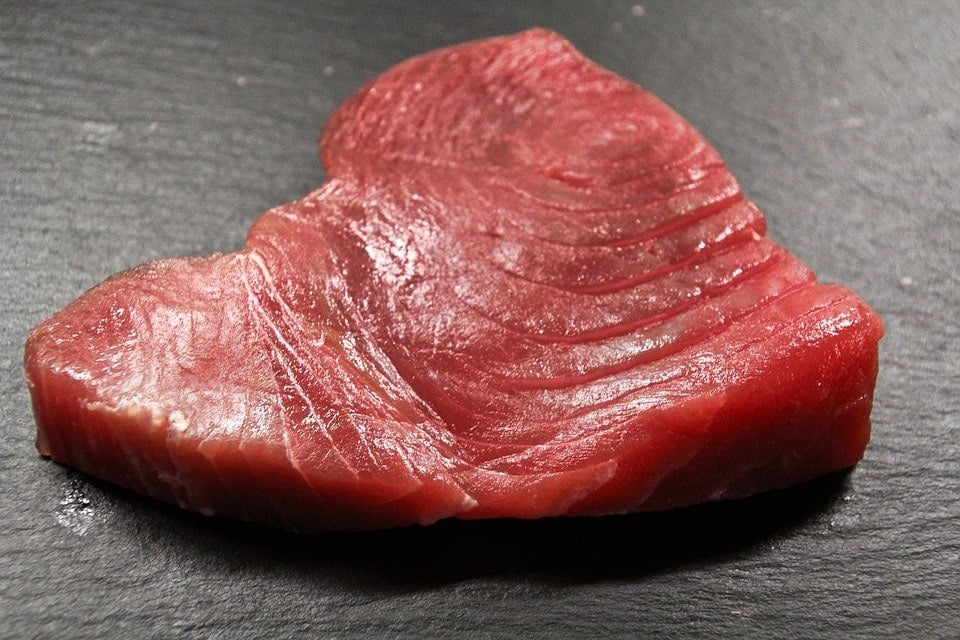Nicotine Poisoning Effects On Dogs: Symptoms, Concerns & Treatment (Vet Answer)

Updated on

Click to Skip Ahead
We’re familiar with the negative effects of nicotine on humans, but what about our canine companions? As we all know, dogs and particularly puppies are prone to eating things that they shouldn’t for example bones, toys, and other inedible objects. This can cause all sorts of problems from mild gastrointestinal upsets to foreign bodies (objects stuck in the intestine or stomach) and poisonings.
However, what happens if they eat a cigarette or even an electronic cigarette? This could easily happen in your house or out on a walk. Keep reading to see why this is extremely worrying to us as pet parents and what you should do if this happens.
If you know your dog has consumed nicotine and is showing symptoms like difficulty walking, vomiting, diarrhea, or tremors, immediately take it to your local veterinarian for treatment.
Why Is Nicotine Harmful?
Nicotine is a potentially life-threatening toxin to dogs and is rapidly absorbed in the body, usually in 30-90 minutes with traditional cigarettes but in as little as 15 minutes with electronic cigarettes. It’s present in cigarettes, chewing tobacco, nicotine gums and patches, electronic cigarettes, and cigars. Some nicotine gums contain xylitol and other additives, which can also be toxic to dogs. Even ashtrays (which are often in easy reach for pets) containing cigarette butts are also potentially harmful.
The lethal dose of nicotine is 9-12mg/kg but doses less than half of that can cause clinical signs related to toxicity. Even doses as low as 1mg/kg can cause symptoms in your pet. That might sound like a lot of nicotine but when you consider that a normal cigarette can contain 9-30mg of nicotine; it’s really not that much. For example, if a 2kg puppy ingested one cigarette that would potentially be enough to be fatal for that puppy.

How Much Nicotine Is in Everyday Products?
When people smoke a cigarette, they can absorb 0.5mg-2mg of nicotine per cigarette. Unfortunately, our dogs absorb a lot more nicotine when they ingest the whole nicotine product.
So how much nicotine is actually in everyday nicotine-containing products?
- Cigarette 9-30mg
- Cigar 15-40mg
- Chewing tobacco 6-8 mg/g
- Nicotine gum 2-4mg
- Nicotine patch 8.3-114mg
- E-cigarette cartridges 6-36 mg of nicotine
As you can see from above, some products contain a lot of nicotine and others less so. Most of these aren’t very palatable for dogs which makes nicotine toxicity less common than other possible poisonings. The exceptions would be chewing tobacco that has sweeteners added that might be more tempting to dogs and flavored electronic cigarette cartridges. Even though it’s not as common as other toxicities, it can have detrimental effects when it does occur.
What Are the Symptoms of Nicotine Toxicity in Dogs?
Could you recognize nicotine poisoning in your dog? It’s important to know the signs of nicotine toxicity that should you be on the lookout for so you can act quickly if you spot it.
Symptoms can include:
- Vomiting
- Salivation
- Diarrhea
- Tremors
- Excitability or depression
- Seizures
- Elevated heart rate
- Difficulty breathing
- Difficulty walking
- In extreme cases; coma and death
Generally, nicotine ingestion causes vomiting as one of the first symptoms due to stimulation of the ‘chemoreceptor trigger zone’. This is a beneficial symptom as it helps to empty nicotine from the stomach and prevent further absorption of nicotine into the body. This may prevent serious poisoning in your dog.
Symptoms after this depend on how much nicotine was ingested and the time that passed before veterinary help could be sought. Very small amounts can cause symptoms similar to a gastrointestinal upset like vomiting, salivation, and diarrhea. Larger amounts of nicotine can cause extreme neurological signs such as seizures and difficulty walking (a drunken, ataxic gait). In severe cases, this may progress to difficulty breathing, coma, and even death.

Is There Any Treatment for Nicotine Poisoning in Dogs?
If your dog has ingested nicotine, it’s important to get them to your veterinarian as soon as possible so that they can treat the poisoning. Early treatment is critical to helping your pet and when it comes to nicotine poisoning, time is of the essence.
Your vet will calculate if the amount of nicotine they’ve ingested has gone over the toxic dose based on your pet’s weight. In cases where your dog has ingested the nicotine within the last 30-60 minutes, your vet will likely give them medicine to make them vomit (induce emesis) to bring up any nicotine that’s in the stomach and hasn’t been absorbed yet. They may then give your pet activated charcoal to bind any remaining toxins that didn’t come up with vomiting.
Treatment will depend on your pet’s symptoms and how much nicotine they’ve ingested. Further treatment may include hospitalization and observation, intravenous fluids, ECG monitoring (monitoring the heart activity), pulse oximetry (monitoring oxygen levels in the blood), anti-convulsive therapy, oxygen therapy, etc.
How Much Does It Cost to Treat a Dog With Nicotine Poisoning?
If your dog has ingested nicotine, it’s always important to bring them to your vet for a consultation. A veterinary consult may cost anywhere from $50-150 depending on where you live. Your vet will calculate the amount of nicotine that your dog has ingested and assess if further treatment is required.
If the nicotine was ingested within the last 30-60 minutes, your vet may induce emesis (make your dog get sick) and likely prescribe activated charcoal. This could cost approximately $200-500. In severe cases that require further treatment e.g., an intravenous drip, blood tests, hospitalization, advanced monitoring, etc. I would prepare for costs from $750-2,000+. These costs are approximations and depend largely on your location and veterinary clinic.
Conclusion
Nicotine poisoning is thankfully a rare poisoning in dogs. However, when dogs do ingest nicotine it can cause a variety of symptoms, some of which are very severe and potentially fatal. For this reason, it’s very important that if you use nicotine products you keep them well out of reach of your dogs. If you think that your dog may have ingested nicotine, don’t waste any time, and get them straight to your veterinarian. Early treatment is crucial to your dog’s wellbeing.
See also:
- My Dog Ate Aquaphor: Here’s What to Do (Vet Answer)
- Secondhand Smoke in Dogs: Is It Safe? Vet Approved Advice
Featured Photo Credit: realworkhard, Pixabay















